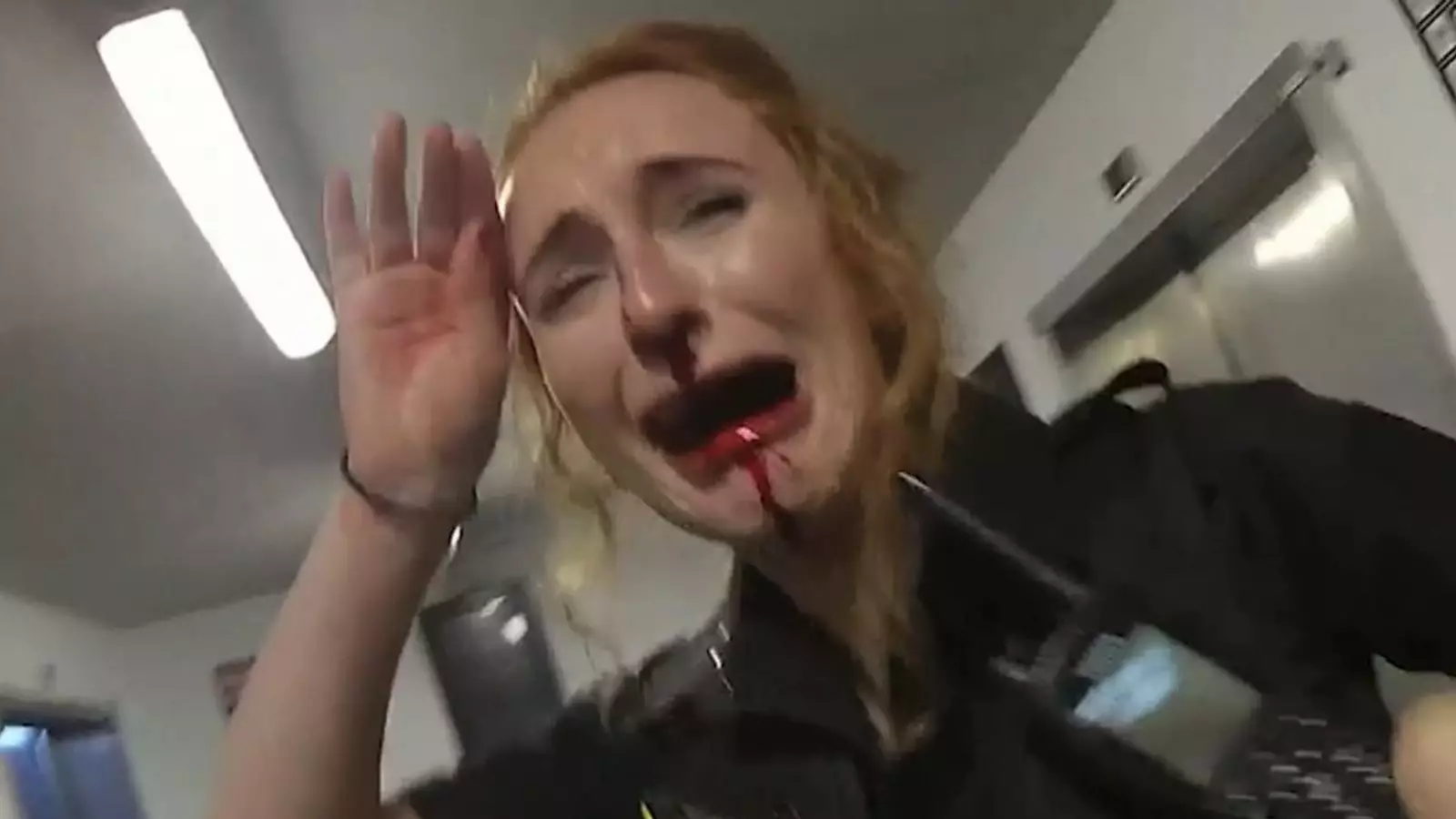In recent times, the respect for law enforcement has become increasingly tenuous, often overshadowed by incidents that expose the fragile veneer of public civility. The case at Manchester Airport, where a police officer was violently assaulted, epitomizes this disturbing trend. The portrayal of a petite, dedicated officer who was left bloodied and terrified raises pressing questions about societal attitudes towards authority figures and the challenges they face in executing their duties. It is not merely about one incident but a reflection of the broader erosion of respect for the rule of law, which is fundamental to a stable and functioning society. We must scrutinize how societal values, media narratives, and political climates contribute to this hostility, turning what should be a mutual trust into a battlefield of suspicion and violence.
Violence Against Authority: Symptom or Catalyst?
The escalation of violence against police officers at public spaces like airports is alarming. It demonstrates a disturbing trend where physical assaults are no longer isolated moments but part of a larger pattern of discontent with authority figures. Why do some perceive law enforcement as adversaries rather than custodians of peace? The incident involving PC Lydia Ward reveals that even in controlled environments, the veneer of civility can quickly shatter, devolving into chaos. The assailant’s resistance, coupled with witnesses’ passivity or hostility, underscores a societal shift—where the sanctity of respecting police is compromised. The question is whether current legal and social measures are sufficient or if society needs a fundamental reassessment of how authority is communicated and upheld.
Systemic Failings and Societal Divisions
This incident also exposes deeper systemic issues. The fact that a young man, believed to be acting out of confusion or perceived threat, could escalate to violence highlights gaps in community policing, mental health support, and social integration. The defender’s argument—that Amaaz believed he was under attack—points to a potential failure of communication and de-escalation strategies. Society’s failure to address underlying issues like social alienation, economic inequality, and mental health struggles can inadvertently foster environments where violence becomes normalized. It is time for policymakers and community leaders to recognize that protecting police isn’t just about punishment but about creating resilient social frameworks that address root causes.
The Politics of Safety and Public Trust
From a political perspective, incidents like this straddle the complex middle ground of liberal centrism—balancing individual rights with the necessity of maintaining order. While safeguarding citizens’ freedoms is essential, an unchecked rise in violence against law enforcement threatens the social contract that binds us. The response shouldn’t be purely punitive; it must include comprehensive measures that promote respect for authority without compromising civil liberties. There’s a clear need to foster societal narratives that valorize police work and emphasize community cooperation. Political discourse must shift from reactive condemnations to proactive investments in community relations and mental health resources, ensuring that respect for the law is rooted in understanding and mutual trust.
The Need for Societal Reflection
The Manchester Airport attack should serve as a wake-up call. It is naive to think that isolated incidents won’t escalate if society continues to trivialize the importance of law enforcement and tolerates violence as mere ‘disobedience.’ We are responsible for shaping an environment where officers like PC Ward can perform their duties without fear of being victims of brutality. The blame isn’t solely on the perpetrator but also on our collective failure to uphold the values of respect, civility, and responsibility. If we ignore this crisis, it risks unraveling the very fabric of civil society, making every public space a potential battleground. The challenge now lies in reaffirming the authority of the law while fostering an environment where those who serve it are protected, valued, and respected.

